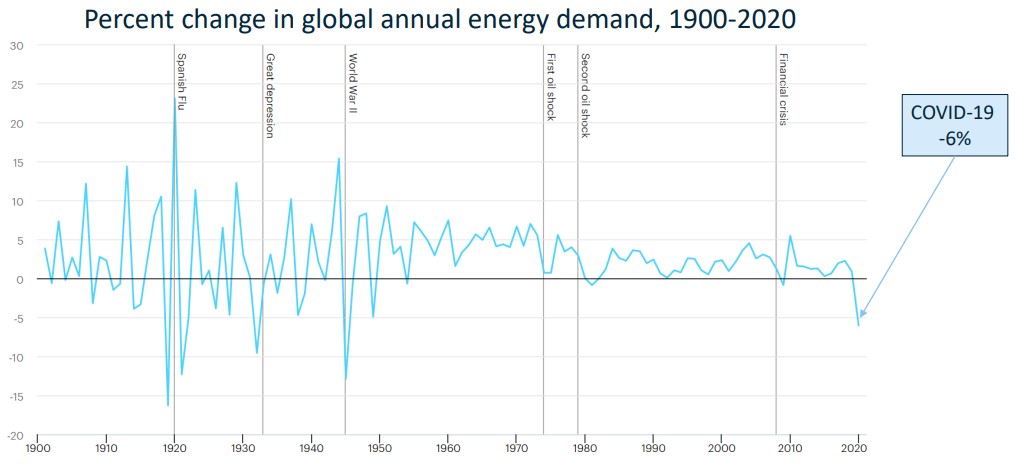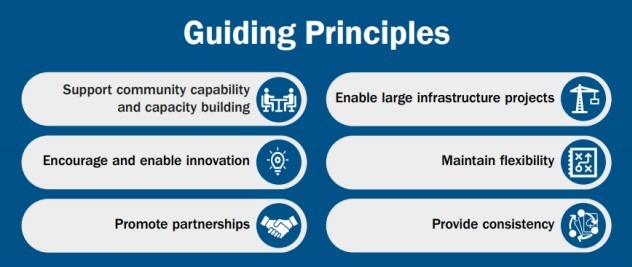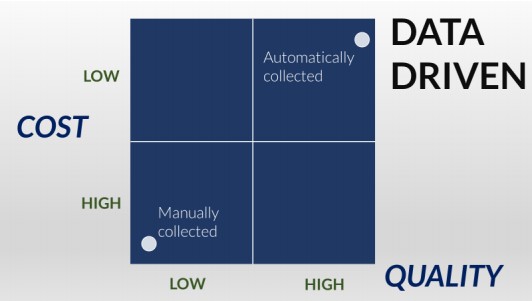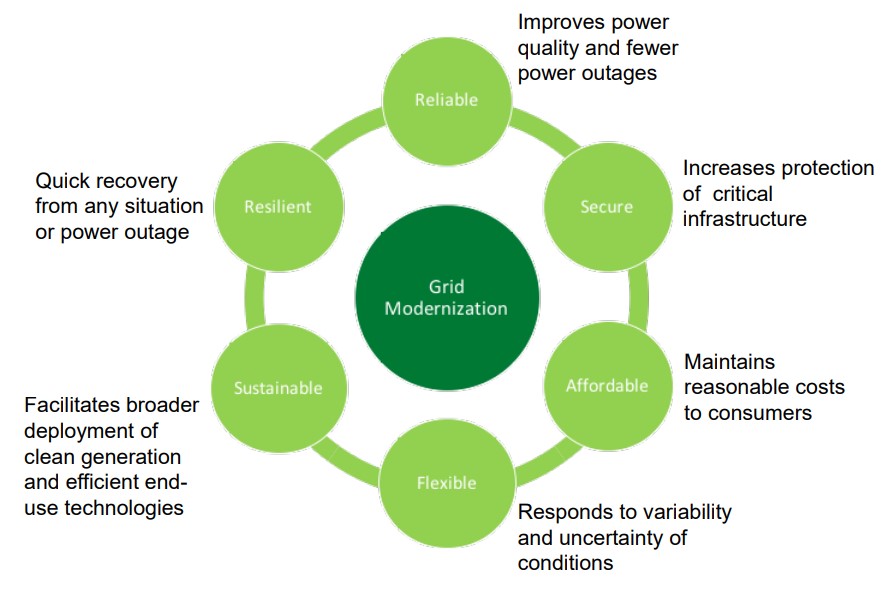The NGA Governors’ Advisors Energy Policy Institute is a unique event that brings together governors’ energy policy staff to share energy policy solutions, learn from national experts, and participate in peer-to-peer exchanges.
Virtual Event – 20, 21, 24, 25 August 2020
Presentations
View/Download: Day 1 | Day 2 | Day 3 | Day 4
Agenda
Day 1 – August 20
Welcome and NGA Updates (1:45-2:15 PM)
NGA staff framed the discussion for the following two days and updated advisors on recent and forthcoming technical assistance opportunities.
- Dan Lauf–Energy Program Director, NGA Center for Best Practices (NGA Center)
- Jessica Rackley–Environment and Energy Program Director, NGA Center
States Speak: Roundtable on Key Energy Priorities (2:15-3:00 PM)
State participants introduced themselves and shared their governor’s energy priorities.
- Moderator: Jessica Rackley, NGA Center
What’s Happening in Energy: Trends and Future Outlook (3:00-3:45 PM)
An expert overview of state and national energy trends, including the impacts of COVID-19 on the energy sector, updates on the state of the oil and natural gas sector, employment issues facing energy workers, and the economic outlook for new and existing technologies.
- Daniel Raimi–Senior Research Analyst at Resources for the Future and lecturer at the Gerald R. Ford School of Public Policy at the University of Michigan
- Moderator: Emma Cimino, Senior Policy Analyst, NGA Center
Day 2 – August 21
Welcome and Day 1 Recap (1:30-1:45 PM)
- Jessica Rackley, NGA Center
Incorporating Equity in Energy Policy (1:45-2:15 PM)
How energy policy is designed can disproportionately impact vulnerable communities. Presenters discussed how disadvantaged communities have been negatively impacted by energy policies? Looking forward, how can governors design energy policy to counteract those negative effects and avoid similar repercussions going forward?
- Chandra Farley–Just Energy Director, Partnership for Southern Equity
- Carmelita Miller–Energy Equity Legal Counsel, Greenlining Institute
- Moderator: Matt Rogotzke, Policy Analyst, NGA Center
Energy Goals and Budget Holes (2:15-3:00 PM)
Over the last several months, states have seen revenues drop and expenses increase. These unforeseen budgetary challenges stem from both COVID-19 and the upheaval in the oil and gas markets. How can governors and their staff continue promoting energy goals in this destabilized budget environment? How can governors prioritize projects and stretch dollars?
- Kathryn White–Director of Budget Process Studies, National Association of State Budget Officers
- Katie Dykes–Commissioner, Connecticut Department of Energy and Environmental Protection
- Moderator: Emma Cimino, NGA Center
State Strategies to Leverage Federal Dollars (3:00-3:50 PM)
As the pandemic continues to have unprecedented impacts, states are expected to press for additional federal support. Experts provided context on how the pandemic has been impacting the energy sector, how to think about recent federal COVID-relief packages, and federal programs that can provide support to the energy sector. Panelists addressed questions such as what opportunities currently exist for federal emergency funds to be used for energy projects? What are the energy sector takeaways from previous federal stimulus efforts, like the American Recovery and Reinvestment Act (ARRA) of 2009, and how can federal dollars be used for energy system improvements?
- Joseph Aldy–Professor of the Practice of Public Policy, Harvard Kennedy School of Government
- Jennifer DeCesaro–Senior Advisor, Office of Electricity, U.S. Department of Energy
- Moderator: Jessica Rackley, NGA Center
Day 3 – August 24
Welcome and Day 2 Recap (1:30-1:45 PM)
- Jessica Rackley, NGA Center
Keynote: The Future of U.S. Carbon Pricing (1:45-2:15 PM)
Many states are interested in adopting carbon pricing policies to achieve their decarbonization goals. This session looked at carbon pricing strategies in the U.S., from cap-and-trade programs to carbon taxes, including the pros and cons of various approaches.
- Robert N. Stavins–Professor of Energy & Economic Development, Harvard Kennedy School of Government
- Introduction: Jessica Rackley, NGA Center
The Future of the Energy Workforce (2:15- 3:00 PM)
National events in recent months have disrupted workforces across the energy sectors, in the clean energy and oil and gas industries alike. What strategies are available to ensure the workforce is there to help states reach their energy goals? How can states retain or retrain their oil and natural gas workers for the future energy system? What can policy makers learn from previous economic downturns? As the energy world continues to evolve, how can governors ensure they have the workforce needed for future and existing generation?
- Reice Haase–Senior Policy Advisor, Office of North Dakota Governor Doug Burgum
- Randi Tveitaraas Jack–Manager, International Development, Kansas Department of Commerce
- Moderator: Timothy Schoonhoven, Policy Analyst, NGA Center
Utility Disconnection Moratoriums: Supporting Financially Strained Consumers While Addressing Financial Constraints on Utilities (3:00-3:45 PM)
Many states put utility disconnection moratoriums in place at the beginning of the COVID-19 outbreak. Now that those moratoriums are lifting, how can states protect low-income or unemployed rate payers while ensuring utilities have the revenue they need to provide reliable electricity? How would permanent or semi-permanent rate increases create longer term policy considerations? How can we look beyond immediate financial needs to make the most cost-effective long-term decisions?
- Commissioner Brandon Presley–Northern District Commissioner, Mississippi Public Service Commission
- John Howat–National Consumer Law Center
- Moderator: Emma Cimino, NGA Center
Day 4 – August 25
Welcome and Day 3 Recap (1:30-1:45 PM)
- Jessica Rackley, NGA Center
Keynote: Energy System Planning for a Modern Electric Grid (1:45-2:15 PM)
States and energy companies are continuing to modernize the electric grid, with new connected and distributed technologies transforming how power is generated, distributed, and consumed. In this presentation, an expert researcher from the Lawrence Berkeley National Laboratory explored these changes and solutions to develop robust energy system planning and policies that accommodate and leverage these new technologies while maintaining – and even improving – the resilience, reliability, and affordability of energy.
- Lisa Schwartz–Deputy Leader, Electricity Markets and Policy Department, Lawrence Berkeley National Laboratory
- Introduction: Dan Lauf, NGA Center
Improving Energy Sector Cybersecurity in Your State (2:15-3:00 PM)
Utilities across the country have experienced an uptick in cybercrime over the last decade, one that has accelerated during the COVID-19 crisis. While considerable actions are being undertaken to address these threats and maintain reliable energy supplies, opportunities remain for governors and utilities to improve coordination and joint preparedness. What are the threats facing the energy sector? What can be learned from these recent attacks? What can governors and state officials do to support and ensure energy cybersecurity?
- Brandi Martin–Sector Engagement, Office of Cybersecurity, Energy Security, and Emergency Response, U.S. Department of Energy
- Gladys Brown Dutrieuille–Chairman, Pennsylvania Public Utility Commission
- Sean Parcel–Director, Cyber Intelligence & Defense, American Electric Power
- Moderator: Dan Lauf, NGA Center
The How and Why of Regional Agreements (3:00-3:45 PM)
This session explored ways for governors to enhance their existing energy efforts and unlock opportunities through regional collaboration. Panelists discussed regional partnerships currently underway such as REV West, the creation of new collaboratives such as an organized energy market in the southeast, or partnerships among coastal states to advance offshore wind. Questions covered include how and why governors choose to enter these agreements, how they are negotiated, and ways that working with other states can help you accomplish your governor’s energy goals.
- Jennifer Chen–Senior Counsel, Nicholas Institute at Duke University
- Eric Steltzer–Director, Renewables and Alternative Energy Division, Massachusetts Department of Energy Resources
- Laura Tabor–Sustainability and Resilience Officer, New Mexico Energy, Minerals and Natural Resources Department
- Moderator: Matt Rogotzke, NGA Center
Conference Wrap Up (3:45-4:15 PM)
NGA led a discussion with the audience recapping the event.
- Dan Lauf, NGA Center
Previous Meetings
- 2019 Governors Advisors Energy Policy Institute
- 2018 Governors Advisors Energy Policy Institute
- 2018 Governors Advisors Energy Policy Institute Pre-Institute Workshop: State Offshore Wind Opportunities
- 2017 Seminar For New Governors’ Energy Advisors And Annual Governors’ Advisors’ Energy Policy Institute
















